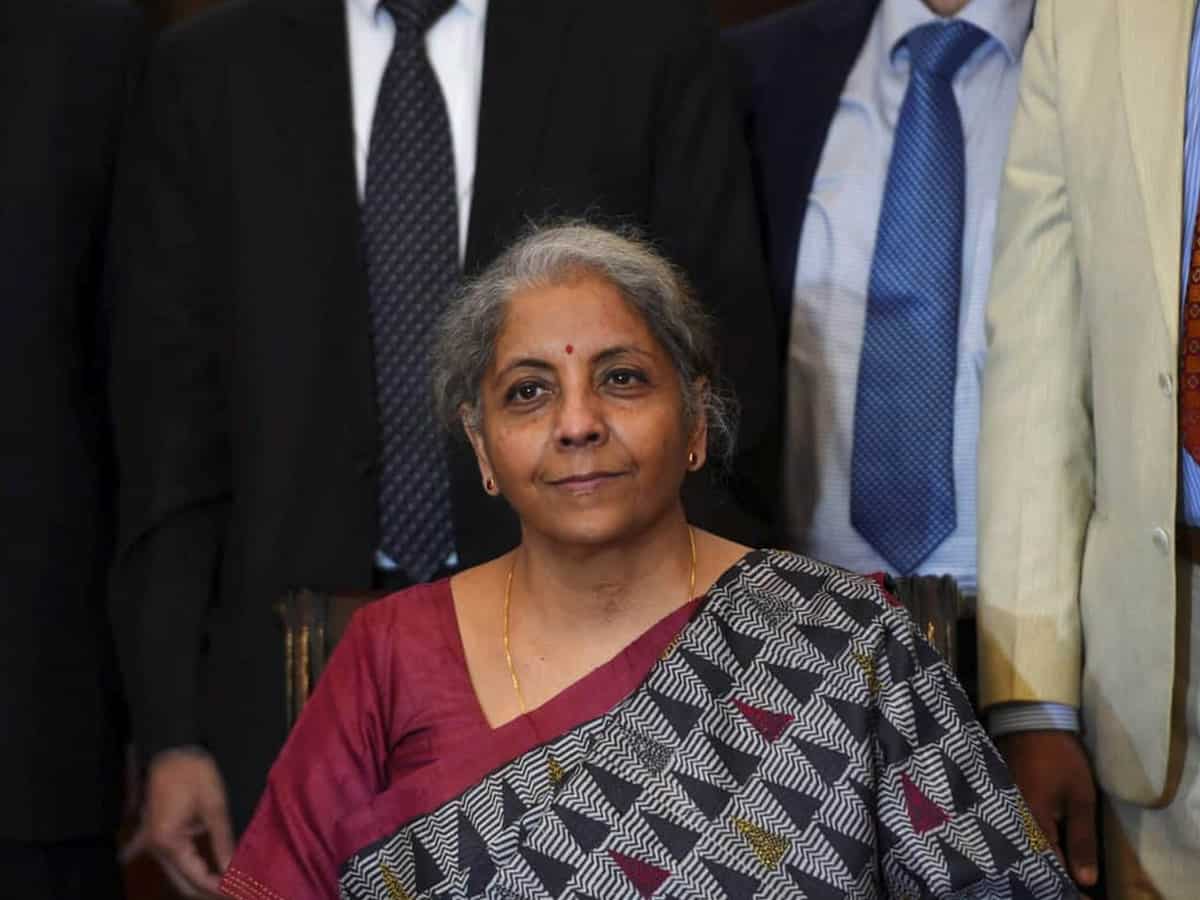
New Delhi: Facing criticism over GST on daily use items, Finance Minister Nirmala Sitharaman on Tuesday said the 5 per cent tax is being levied on wheat flour and other items after nodding from all states, including non-BJP ruled states.
Non-BJP ruled states of Punjab, Chhattisgarh, Rajasthan, Tamil Nadu, West Bengal, Andhra Pradesh, Telangana and Kerala had agreed to impose the 5 per cent levy, she said.
In a series of tweets, Sitharaman said states levied sales tax or VAT on foodgrains in the pre-Goods and Services Tax (GST) regime and the present levy on cereals, and pulses, flour, curd and lassi is an exercise to curb tax leakage.
The decision, she said, was taken by the GST Council, where all states are represented, through a consensus.
The minister’s comments come against the backdrop of the first two days of the monsoon session of Parliament virtually getting washed away due to vociferous protests by Opposition parties over the GST on daily use items and other issues.
“Is this the first time such food articles are being taxed? No. States were collecting significant revenue from foodgrain in the pre-GST regime. Punjab alone collected more than Rs 2,000 crore on food grain by way of purchase tax. UP collected Rs 700 crore,” she said.
Sitharaman also cited VAT on rice levied prior to 2017 in Punjab Telangana, Uttar Pradesh, Andhra Pradesh, Kerala and Bihar to buttress her point.
However, the tweets did not give instances of levy of tax on pulses, paneer and lassi as has been the case now.
“Recently, the GST Council in its 47th meeting recommended reconsidering the approach for the imposition of GST on specified food items like pulses, cereals, flour, etc. There have been a lot of misconceptions about this that have been spread,” the minister said.
When the GST regime, which subsumed 17 central and state taxes including central excise and state VAT, was rolled out in July 2017, a 5 per cent tax was levied on ‘branded’ cereals, pulses, and flour.
“Later this was amended to tax only such items which were sold under registered brand or brand on which enforceable right was not foregone by the supplier,” she said. “However, soon rampant misuse of this provision was observed by reputed manufacturers and brand owners and gradually GST revenue from these items fell significantly.”
Suppliers and industry associations asked the government to impose GST uniformly on all packaged commodities to stop such misuse, she said.
The issue was referred to a Fitment Committee consisting of officers from Rajasthan, West Bengal, Tamil Nadu, Bihar, Uttar Pradesh, Karnataka, Maharashtra, Haryana and Gujarat.
The panel, she said, examined the issue over several meetings and made its recommendations for changing the modalities to curb misuse.
The recommendations of the committee were examined by a Group of Ministers composed of members from West Bengal, Rajasthan, Kerala, Uttar Pradesh, Goa and Bihar and was headed by the chief minister of Karnataka.
The GoM recommendation was placed before the GST Council, the highest decision-making body of the new tax regime, at its meeting in Chandigarh last month.
“It is in this context that the GST Council in its 47th meeting took the decision. With effect from July 18, 2022, only the modalities of imposition of GST on these goods was changed with no change in coverage of GST except 2-3 items,” she said.
A 5 per cent GST was levied on these food items when supplied “pre-packaged and labelled”.
“For example, items like pulses, cereals like rice, wheat, flour, etc, earlier attracted GST @ 5% when branded and packed in a unit container. From 18.7.2022, these items would attract GST when ‘pre-packaged and labelled’,” she said.
However, pulses, wheat, rye, oats, maize, rice, flour, suji, besan, puffed rice and curd/lassi when sold loose and not pre-packed or pre-labelled will not attract any GST.
“This was a unanimous decision by the GST Council. All states were present in GST Council when this issue was presented by the Group of Ministers on Rate Rationalisation in the 47th meeting held in Chandigarh on Jun 28, 2022.
“All States, including non-BJP States (Punjab, Chhattisgarh, Rajasthan, Tamil Nadu, West Bengal, Andhra Pradesh, Telangana, Kerala) agreed with the decision. This decision of the GST Council is yet again by consensus,” Sitharaman said.
The changes were recommended by the GoM and were “carefully considered this proposal, taking into account the tax leakage,” she said.
“To conclude: this decision was a much-needed one to curb tax leakage. It was considered at various levels including by officers, and the Group of Ministers, and was finally recommended by the GST Council with the complete consensus of all members,” she said.”



